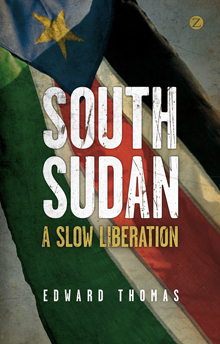
After fifteen months of civil war in South Sudan, regional and international mediators continue to broker talks for a permanent ceasefire and power-sharing arrangement acceptable to both sides. But such a settlement will be just the beginning of a process towards lasting stability in a country where the potential for conflict is rooted in a host of difficult and deep-seated problems. These include poverty and insecurity, weak national and local political structures, entrenched conflict economies, inter-ethnic rivalries, and the competing interventions of neighbouring countries.
On 27 February 2015, the Rift Valley Institute Nairobi Forum hosted a panel discussion to launch the new book South Sudan: A Slow Liberation, by Eddie Thomas. The event examined the limitations of the anticipated settlement and sought to identify opportunities for regional governments and the international community to work together—and with the South Sudanese—for a more enduring peace.
Moderator
Don Bosco Malish, Open Society Initiative for Eastern Africa
Panellists
Eddie Thomas, Author
Peter Biar Ajak, Center for Strategic Analyses and Research
Casie Copeland, International Crisis Group



